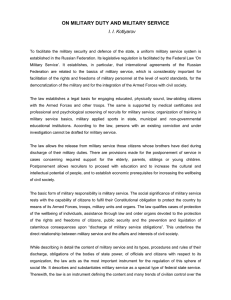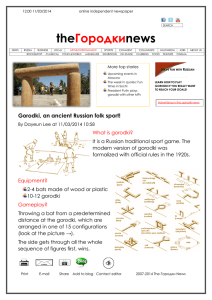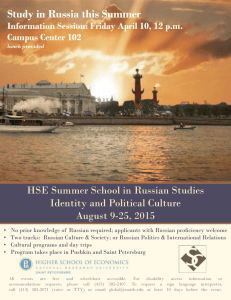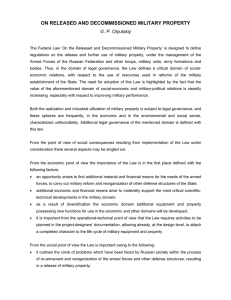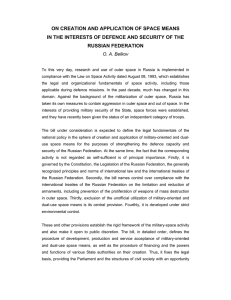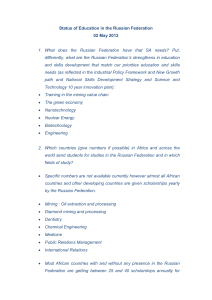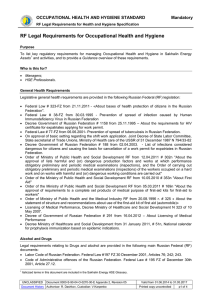ON THE STATUS OF MILITARY PERSONS Yu. A. Chernavin
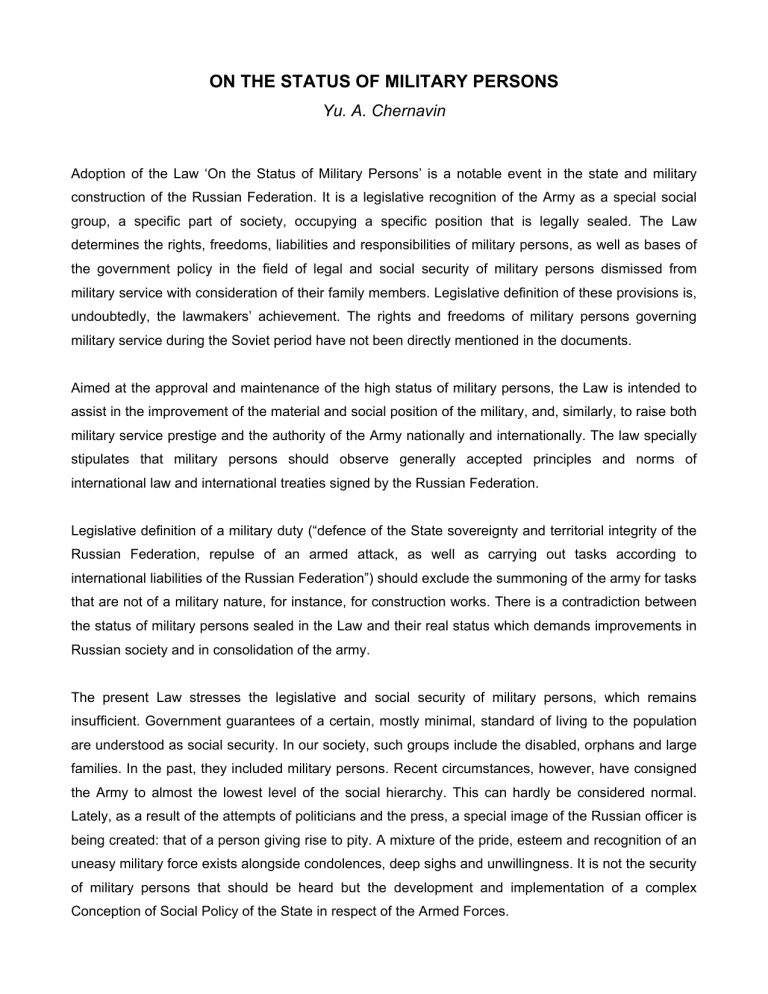
ON THE STATUS OF MILITARY PERSONS
Yu. A. Chernavin
Adoption of the Law ‘On the Status of Military Persons’ is a notable event in the state and military construction of the Russian Federation. It is a legislative recognition of the Army as a special social group, a specific part of society, occupying a specific position that is legally sealed. The Law determines the rights, freedoms, liabilities and responsibilities of military persons, as well as bases of the government policy in the field of legal and social security of military persons dismissed from military service with consideration of their family members. Legislative definition of these provisions is, undoubtedly, the lawmakers’ achievement. The rights and freedoms of military persons governing military service during the Soviet period have not been directly mentioned in the documents.
Aimed at the approval and maintenance of the high status of military persons, the Law is intended to assist in the improvement of the material and social position of the military, and, similarly, to raise both military service prestige and the authority of the Army nationally and internationally. The law specially stipulates that military persons should observe generally accepted principles and norms of international law and international treaties signed by the Russian Federation.
Legislative definition of a military duty (“defence of the State sovereignty and territorial integrity of the
Russian Federation, repulse of an armed attack, as well as carrying out tasks according to international liabilities of the Russian Federation”) should exclude the summoning of the army for tasks that are not of a military nature, for instance, for construction works. There is a contradiction between the status of military persons sealed in the Law and their real status which demands improvements in
Russian society and in consolidation of the army.
The present Law stresses the legislative and social security of military persons, which remains insufficient. Government guarantees of a certain, mostly minimal, standard of living to the population are understood as social security. In our society, such groups include the disabled, orphans and large families. In the past, they included military persons. Recent circumstances, however, have consigned the Army to almost the lowest level of the social hierarchy. This can hardly be considered normal.
Lately, as a result of the attempts of politicians and the press, a special image of the Russian officer is being created: that of a person giving rise to pity. A mixture of the pride, esteem and recognition of an uneasy military force exists alongside condolences, deep sighs and unwillingness. It is not the security of military persons that should be heard but the development and implementation of a complex
Conception of Social Policy of the State in respect of the Armed Forces.

